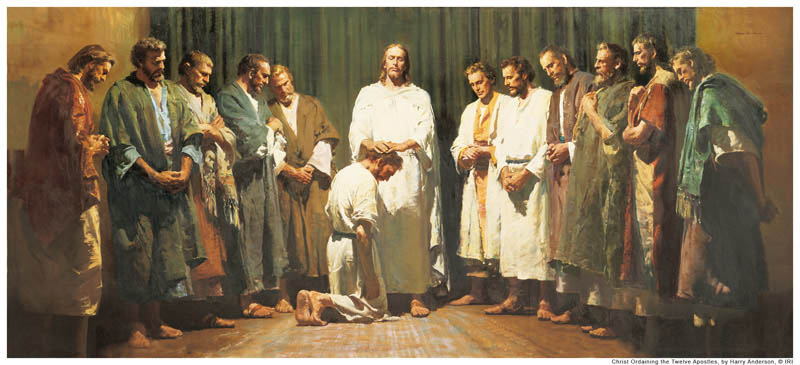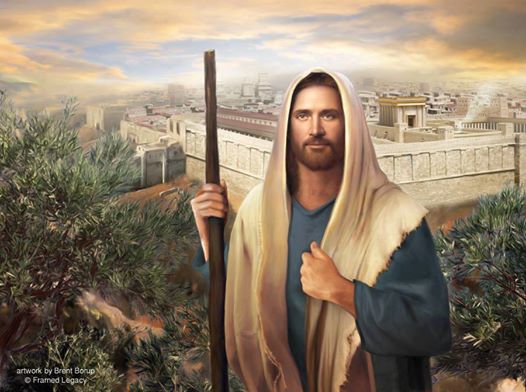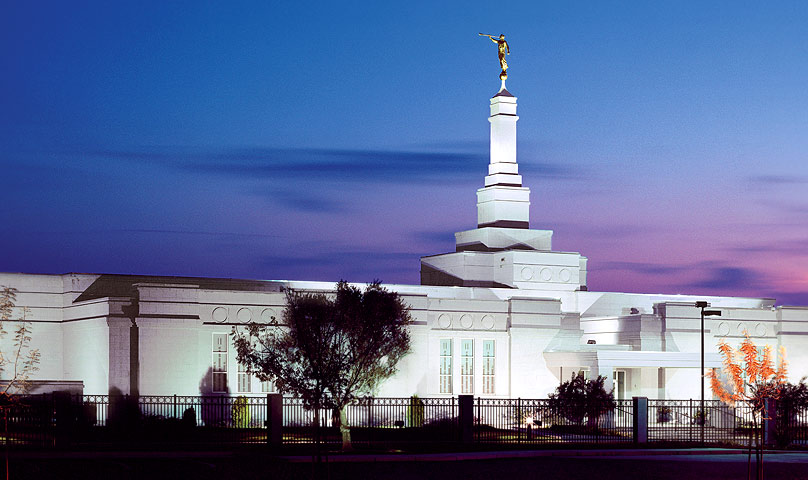Question
Dear Gramps,
I have a question about how Christ restored the church during his life. Joseph Smith within a span of 20 years completely restored the church with temples, temple ordinances, plural marriage, work for the dead, etc. Why didn’t Christ restore these same things during his day and organize the people to build temples and do that same work? Christ was far more influential and capable than even Joseph Smith in organizing a people to do that work. Even more so, why did he not teach of plural marriage during his lifetime? It almost seems that Joseph did more in restoring actual and physical ordinances regarding sacred temple work than Jesus Christ himself. Why are none of these things regarding work for the dead, temple sealing, plural marriage, etc, ever instituted by Christ during his life if we claim to have the fully restored gospel exactly the same as in Christ’s day? It would seem at least equally important if not more important that Christ would institute all of those same things in his life to set the example and the foundation. Specifically regarding plural marriage, work for the dead, temple sealing, etc. He should have at least touched on those things in his teachings during his life. Please help me understand this subject better.
Bryce
Answer
Dear Bryce,
There are several things to consider in responding to your interesting question. First, all that we know about the organization of the Church by the Savior was written by the four biographical writers, Matthew, Mark, Luke and John; one historical book (Acts) by Paul plus the fourteen Pauline epistles–mostly letters giving counsel and advise to the various churches and associates of Paul; seven general epistles written by James, Peter, John and Jude; and one prophetical book by John. These books were not directed to an exposition of the organization of the Church, but rather mostly exhortations to the members to practice and obey the gospel that they had espoused. From those epistles and narratives we must piece together what we can of the church organization.
Secondly, we must recognize the political and social conditions existing at the time of the organization of the Church by the Savior. In his day the Jews were at war with the Romans, and the Romans were in control of the Holy Land. Further, there were no immediate means of communication that we take for granted today. All communication was hand written and carried by messenger from place to place. Further, travel was by foot or by donkey. Horses were generally reserved for the military. Further, Christ’s public ministry lasted for only three years, at the end of which he was crucified. So we could not expect under those conditions a development of the Church as occurred in the time of Joseph Smith. In fact, the church that the Savior organized soon went into apostasy and was completely lost. That, of course, was not due to any limitation of the Savior’s organization skills, but entirely due to the conditions of the times. In fact, all that occurred in those days was before revealed in prophecy.
You mention that plural marriage was not taught in the Savior’s time. B. H. Roberts, in his Defense of the Faith and the Saints, p.272, had this to say on the subject—
“Next let us inquire whether there are any intimations in the Scriptures concerning the wives of Jesus. One thing is certain: that there were several holy women who greatly loved Jesus, such as Mary and Martha, her sister, and Mary Magdalene; Jesus greatly loved them and associated with them much; and when he arose from the dead, instead of first showing himself to his chosen witnesses, the apostles, he appeared first to these women, or at least to one of them, namely, Mary Magdalene. Now it would be very natural for a husband in the resurrection to appear first to his own dear wives, and afterwards show himself to his other friends. If all the acts of Jesus were written, we no doubt should learn that these beloved women were his wives. Indeed, the Psalmist David prophesies in particular concerning the wives of the Son of God. ‘Kings’ daughters were among thine honorable wives; upon thy right hand did stand the Queen in a vesture of gold of Ophir.”-Apostle Orson Pratt in The Seer, page 159.”
Please keep in mind that even though I quoted the above, there is still not an official stance on whether Christ was married. It is very much assumed he was. Personally (my opinion) I believe He was.
And this, from Journal of Discourses, 15:, p.29—
“Both John the Baptist and the Savior denounced all sins with an unsparing hand, and especially adultery, fornication and divorce; and not a sentence is found in the New Testament which prohibits plurality of wives, though the Savior and his Apostles lived in a country where it was practiced; and it is impossible to believe that if it were a sin it would have escaped definite rebuke and absolute condemnation.”
You also mention that there is nothing in the New Testament about work for the dead. However, that also was a doctrine practiced in the early Church. In fact, Paul uses the principal and practice of work for the dead to prove that there is a resurrection. From 1 Cor. 15:22-29, we read—
For as in Adam all die, even so in Christ shall all be made alive.
But every man in his own order: Christ the firstfruits; afterward they that are Christ’s at his coming.
Then cometh the end, when he shall have delivered up the kingdom to God, even the Father; when he shall have put down all rule and all authority and power.
For he must reign, till he hath put all enemies under his feet.
The last enemy that shall be destroyed is death.
For he hath put all things under his feet.But when he saith all things are put under him, it is manifest that he is excepted, which did put all things under him.
And when all things shall be subdued unto him, then shall the Son also himself be subject unto him that put all things under him, that God may be all in all.
Else what shall they do which are baptized for the dead, if the dead rise not at all? why are they then baptized for the dead?
So perhaps you can infer from these examples of the acceptable practices of plural marriage and baptisms for the dead, that indeed the Savior did organize the church in his day as completely and as competently as it was possible to do at that time. After all, it is HIS church, not the church of Joseph Smith or anyone else. He is the Lord and Savior of mankind, and the saving covenants with their accompanying ordinances, were made by him. Whatever He has done was executed with perfection. Fallible men, gifted with free agency, have carried on the divine work, either to its destruction after the time of the Savior, or to its glorification after the time of the restoration.
Gramps







